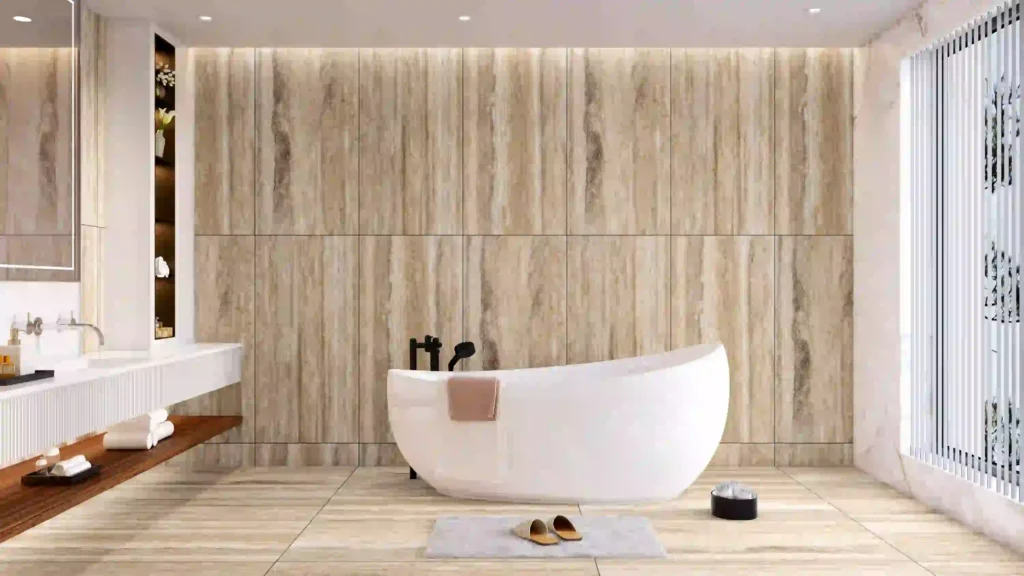Overview
The selection of materials is a critical factor in determining the whole production process’s environmental impact when it comes to sustainable manufacturing methods. “Eco-Friendly Materials in Manufacturing” takes readers on an exploration of the cutting edge of sustainable material selections, emphasizing the vital role these choices play in guiding industries toward a more environmentally conscious and socially conscious future. This investigation demonstrates the importance of using eco-friendly materials in production through a number of pivotal aspects.
Utilizing renewable resources to reduce reliance on impoverish sources
Tree Tile realize that the genesis of eco-friendly products is fundamental to their nature. Materials from renewable resources, such as bamboo, cork, or repurposed wood, are used in sustainable production. Manufacturers help to preserve ecosystems and biodiversity by lowering reliance on finite resources. A deliberate move toward materials that are naturally replenish able is the first step towards achieving sustainability.
Ending the material loop through recyclability and the circular economy
The capacity to close the material loop decreases waste, lessens environmental effect, and promotes a more sustainable approach to resource utilization, from recycled metals to post-consumer polymers.
Reduced carbon footprint: reducing ecological damage
The reduced carbon footprint of eco-friendly materials is a crucial need. These materials’ production method uses less energy-intensive stages, which lowers greenhouse gas emissions. Materials that help reduce overall environmental effect are prioritized, whether through energy-efficient technologies or sustainable forestry practices.
Biodegradability: a safe return to nature
Biodegradability is a top priority for eco-friendly materials, meaning that at the end of their life cycle, they may naturally break down without leaving behind any hazardous residues. Materials derived from plants, such as bioplastics, are good examples of this attribute. As an alternative to non-biodegradable materials, producers can help mitigate the ongoing environmental problems by selecting materials that can safely return to nature.
Non-Toxic formulations: giving environmental and human health first priority
In sustainable manufacturing, environmental and public health safety are of utmost importance. Non-toxic formulations that eliminate or significantly reduce the use of hazardous chemicals are a defining characteristic of eco-friendly materials. This keeps dangerous materials out of the environment and guarantees the safety of the people engaged in the manufacturing process.

Creative composite materials: power in long-term collaboration
Tree Tile reserve innovative composite materials that combine the strength and durability of conventional materials with environmentally friendly qualities are made possible by advancements in sustainable manufacturing. For example, bio-based composites, which are composed of natural fibres and resins, provide a sustainable substitute for traditional materials without sacrificing functionality. This combination of durability and sustainability is a ground-breaking development in the history of materials used in production.
Consumer education and awareness: encouraging conscientious decisions
Working together with end users is essential to navigating the sustainable route. Manufacturers are essential in educating consumers about the advantages of eco-friendly materials and increasing public awareness of them. Customers are better equipped to make ethical decisions that are consistent with sustainable principles when items are transparently labelled and communicated about their effects on the environment.
Sustainable development at a low cost: busting the myth of exorbitant prices
More affordable alternatives have been made possible by technological advancements and the rising need for sustainable solutions. When manufacturers use eco-friendly materials, they frequently discover that the long-term advantages—such as enhanced consumer loyalty and brand image—outweigh the early expenses of the investment.
Standards and regulatory compliance: establishing high standards
Respect for regulations is essential to finding the right route toward sustainability. International organizations and governments set standards for environmentally friendly materials and industrial techniques, establishing the bar for excellence in sustainable production. Adhering to these guidelines not only guarantees environmental accountability but also bolsters reputation and competitiveness in the international market.
Conclusion
Tree Tile assure you to give the best and eco-friendly materials in manufacturing lays forth a roadmap for global industry’s transition to a more responsible and sustainable future. Manufacturers have a great deal of control over how their products affect the environment by carefully choosing their materials. The manufacturing sector can help create a future where eco-friendly practices are necessary for a healthy and balanced planet by pursuing sustainability with renewable resources, recyclability, low carbon footprints, and a dedication to human and environmental health.
When it comes to slab tiles, Morbi stands out as a hub of innovation and excellence. With state-of-the-art manufacturing facilities and cutting-edge technology, Morbi’s slab tiles industry produces high-quality products that meet the demands of modern architecture and design. From large-format slabs to intricate patterns, Morbi’s manufacturers offer a wide range of options to elevate any space with elegance and sophistication.




